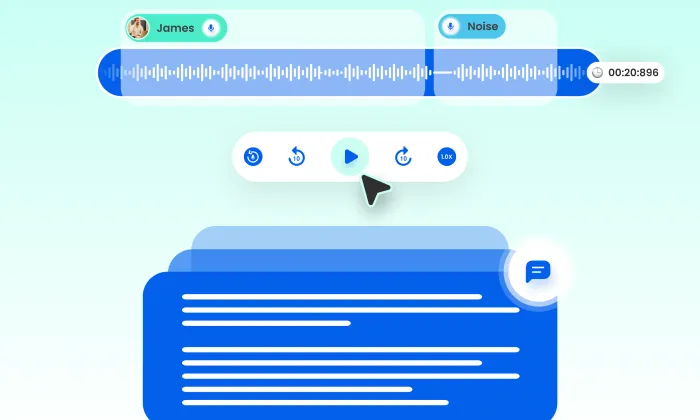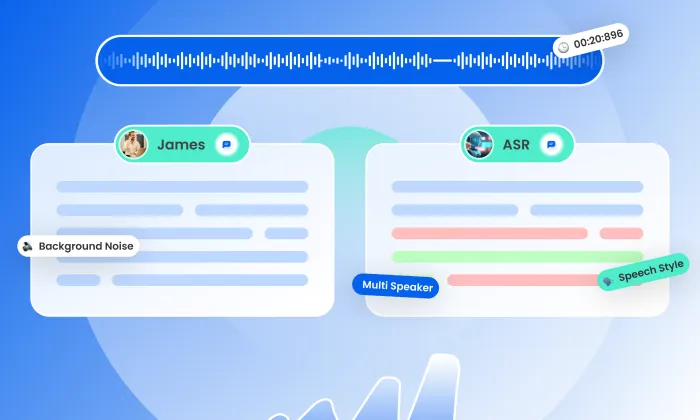What metadata is included with wake word datasets?
Wake Words
Voice Recognition
Datasets
In the world of voice recognition technology, metadata plays a crucial role in the effectiveness and performance of AI models. At FutureBeeAI, we define metadata as the critical context that enhances our wake word datasets, ensuring accuracy, robustness, and compliance with privacy standards. Let’s explore the metadata we provide, how it integrates into your training pipeline, and why it’s essential for model performance.
Quick Facts
- Supported Languages: 100+
- Audio Format: WAV 16kHz/16-bit
- Metadata Format: JSON/TXT
Core Metadata Fields in Wake Word Datasets
Our wake word datasets include a comprehensive set of metadata fields designed to provide insights and structure for optimal model performance. Key fields include:
1. Speaker Demographics: Details like age, gender, and accent are essential for ensuring models perform well across diverse user profiles.
2. Language and Dialect: Indicates the language and regional variations, supporting linguistic adaptability.
3. Scenario Context: Describes the recording environment (indoor/outdoor, noise levels) to help the model recognize wake words under varying conditions.
4. Recording Conditions: Specifies sample rate, file format, and technical specifications to align with machine learning standards.
5. Utterance ID and Speaker ID: Unique identifiers help track and organize recordings, improving model organization and data management.
6. Session/Timestamp: Logs the exact time and session in which recordings occurred for better traceability.
7. Device/Microphone Type: Details about the recording hardware used, influencing audio quality and model accuracy.
8. SNR (Signal-to-Noise Ratio): Measures audio clarity, ensuring models are trained with high-quality audio, especially in noisy environments.
9. Environment Noise Tag: Categorizes background noise (e.g., traffic, office chatter) to help models filter out irrelevant sounds.
10. QA Status (Pass/Fail): Indicates whether the recording has passed our quality assurance (QA) process.
11. Transcriber ID: Identifies the transcriber for accountability and traceability in dataset creation.
12. Consent Flag: Ensures compliance with data privacy regulations, confirming user consent for data usage.
How Metadata Boosts Model Accuracy & Compliance
Metadata isn’t just about organization, t’s a game-changer for AI model performance and compliance. Here’s how it enhances your systems:
- Enhanced Recognition Accuracy: Diverse metadata helps create more robust models that perform well across varied demographics and environmental conditions.
- Tailoring User Experience: Contextual metadata allows models to be fine-tuned, ensuring they adapt to user-specific needs and environments.
- Ensuring Ethical AI: Rich metadata ensures transparency and compliance with privacy regulations, helping to build trust with end users.
Integrate Metadata into Your ML Pipeline
To make the most out of metadata, consider integrating it into your ML pipeline with the following steps:
- Filter by SNR > 20 dB: Use high-quality audio for model training by filtering out noisy samples.
- Balance Dialects via Speaker ID Splits: Ensure demographic representation in your dataset by splitting it based on age, accent, and gender.
- Trigger On-the-Fly Data Augmentation by Environment Tags: Use environmental metadata to adjust models to various noise conditions dynamically.
The FutureBeeAI Advantage
At FutureBeeAI, we capture and integrate metadata through our YUGO platform, ensuring seamless integration into your workflows. Our process includes:
- 2-Layer QA: Ensures data integrity and model precision.
- Storage & Versioning: Metadata is securely stored alongside audio in S3, automatically versioned for each submission.
Our datasets support a wide range of applications, from voice assistants to automotive systems, ensuring compliance and accuracy for all your AI projects.
Conclusion
Understanding and utilizing rich metadata from FutureBeeAI can significantly enhance the performance of your AI models and ensure they’re ready for real-world applications. Whether you're working on smart speakers, mobile apps, or voice assistants, our datasets provide the structure you need to build innovative, compliant, and user-friendly voice AI systems.
Contact us to learn how we can help you leverage metadata for enhanced AI capabilities or explore our custom solutions tailored to your needs.
FAQs
Q: How do I access metadata?
A: Metadata is provided with every dataset purchase, formatted in JSON or TXT for easy integration into your systems.
Q: Can I customize metadata fields?
A: Yes, our custom dataset solutions allow you to tailor metadata fields to your project’s specific needs.
What Else Do People Ask?
Related AI Articles
Browse Matching Datasets
Acquiring high-quality AI datasets has never been easier!!!
Get in touch with our AI data expert now!








